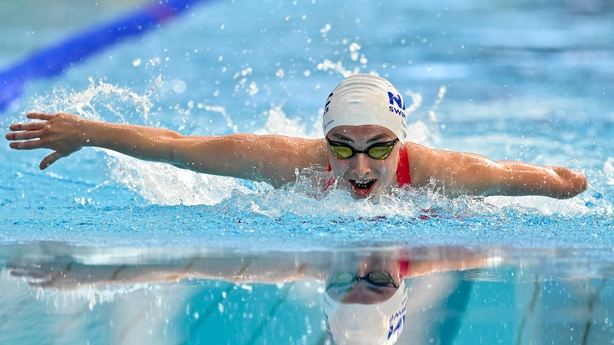Michael Johnson believes Paralympic sport must step up its attempts to find a new classification system that is easier for a growing audience to understand.
Global viewing figures for the Rio 2016 Paralympics topped four billion, according to Statista, and could increase for Tokyo 2020, which gets under way on 24 August.
Four-time Olympic champion Johnson is an avid supporter of the Paralympic movement, but says it must meet the demand for a clearer and fairer way of grouping athletes together.
The 53-year-old American said: "That's a view which is shared by a lot of people, myself included.
"I think it’s a challenge, and I don’t think it’s any secret, a challenge that Paralympic sport will have to deal with as people start to move away from just appreciating and supporting out of sympathy.
"When people have watched and start to say, 'Hey, this is good sport’, which is what Paralympic athletes want to see and be recognised as, and I’m sure that’s what the Paralympic movement wants – to be recognised just as competitive sport.
"As people move more towards viewing it from that perspective, there’s going to need to be more work done by the Paralympic movement to ensure that the classifications are clear to people, so they understand it."
Johnson urged any viewers who might be put off by the confusion to stick with it, but said the classification system must also be made fairer for the athletes themselves.
"They must make it a more level playing field, and I know that’s something that they’re dealing with now and that’s not going to be easy," he said.
"That’s going to be a huge undertaking. So I would say to people who watch and have that frustration to be patient.
"But at the same time, fans of Paralympic sport and the athletes will have to continue to demand improvement continues around the classification, so that ultimately it’s as fair as it can possibly be.
"How fair and how level you can get given that everyone’s disability is different, I’m not sure.
"If you compare it to Olympic sport, everyone’s talent is different too, so you know, there’s probably an argument that, well everybody’s different.
"But I think that at a point you have to create some boundaries and classifications that make sense to people."

In an interview recorded in 2019 for RTÉ's recent Horizon Tokyo documentary, Rio bronze medallist Ellen Keane, who is missing an arm below the elbow, spoke of her frustrations with the system after rivals with less severe disablities were reclassified into her S9 category.
"I went into Rio really anxious because it was my third Games, I'd never won a medal before and it took a lot for me to win that bronze medal," she said. "And then once I won it, I kind of started to believe that I could actually win a gold medal.
"And it was just taken from me, there was nothing I could do about it. And it doesn’t matter how much faster I get, how disciplined I am, how hard I work, I’m never going to get there."
Speaking to The W podcast in the same year, she further explained the system.
"To try and make it as fair as possible, para athletes compete against people with similar disabilities to them. For swimming, S1 to S10 would be a physical disability, S1 being the most disabled and S10 being the least disabled.
"I'm in S9 and I'm missing my arm from below the elbow. S11 to S13 is visual impairment. S11 would be completely blind, S13 would be a little bit visually impaired.
"S14 would be an intellectual impairment. It's kind of like boxing in terms of the weight categories. There's a certain cut-off point and that's where it is.
"I know myself I've been up and down a bit based on... a quarter of a centimetre of my arm was the difference between me and a medal in London. I was in the higher classification in London.
"They allowed me to bring in an X-ray that showed they were measuring from the wrong space in 2015 so I got put back down.
"They system is flawed. People are getting through the cracks."


